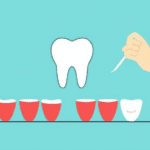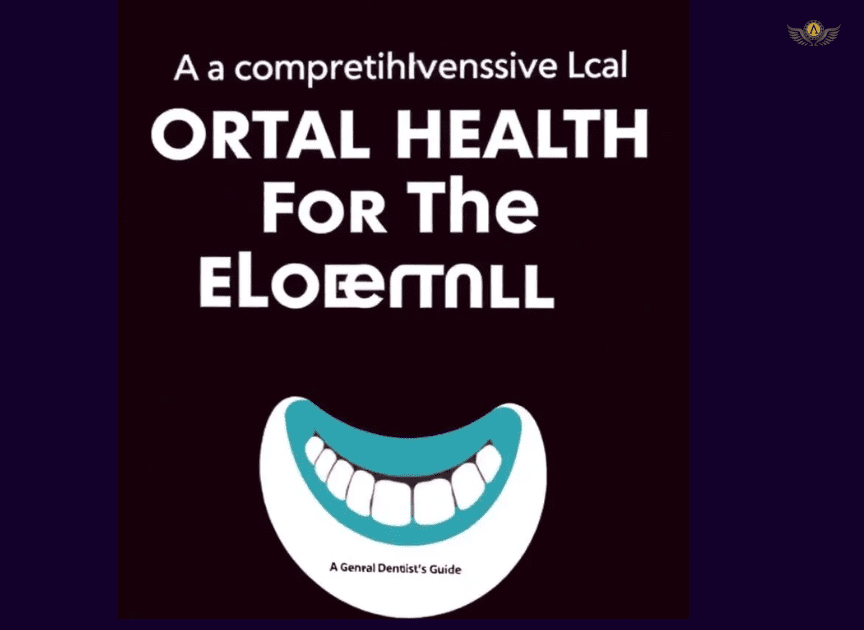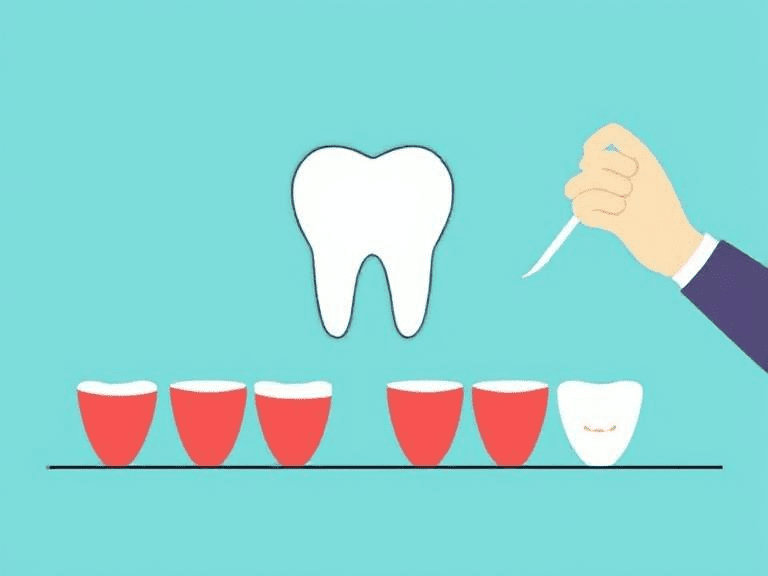Oral health is important at every age, but it becomes even more crucial as we grow older. Aging brings unique challenges to maintaining a healthy mouth. the dentists at north cypress understand this well. They focus on providing tailored care for elderly patients. In this guide, we will explore essential aspects of oral health for the elderly. This includes understanding common issues, preventative measures, and treatments.
Common Oral Health Issues in the Elderly
As we age, several oral health challenges may arise. Understanding these issues helps in taking proactive steps to address them:
- Gum Disease: This is prevalent due to plaque buildup and can lead to tooth loss.
- Tooth Decay: Aging teeth are more susceptible to decay, especially around old fillings.
- Dry Mouth: Often caused by medications, dry mouth increases the risk of cavities.
According to the Centers for Disease Control and Prevention, nearly one in five adults aged 65 or older has untreated tooth decay. This highlights the importance of regular dental check-ups.
Preventative Measures
Preventing oral health problems is key to maintaining a healthy mouth in older age. Here are three effective strategies:
- Regular Cleanings: Routine dental cleanings help prevent gum disease and tooth decay.
- Fluoride Treatments: These can strengthen tooth enamel and fight decay.
- Hydration: Drinking water aids in maintaining saliva production, and reducing dry mouth issues.
Treatments and Care
Treatment for oral health problems in the elderly may differ from those in younger patients. Here’s what typically needs attention:
- Periodontal Treatment: For gum disease, deep cleaning or surgery may be necessary.
- Fillings and Crowns: Address tooth decay with appropriate restorative procedures.
- Saliva Substitutes: These can help manage dry mouth effectively.
Comparison: Common Oral Problems and Solutions
| Oral Problem | Solution |
| Gum Disease | Professional cleaning, good oral hygiene |
| Tooth Decay | Fluoride treatments, fillings |
| Dry Mouth | Saliva substitutes, increased water intake |
Additional Tips for Maintaining Oral Health
Maintaining oral health in older age involves more than just visits to the dentist. Consider these additional tips:
- Healthy Diet: A diet rich in vitamins promotes gum and tooth health.
- Quit Smoking: Smoking increases the risk of gum disease and oral cancer.
- Daily Brushing and Flossing: Essential for removing plaque and preventing decay.
For more detailed guidance, visit the National Institute on Aging. They offer resources specifically focused on dental care for older adults.
Conclusion
Oral health care for the elderly requires special attention and proactive measures. By understanding common issues and following preventative practices, it’s possible to maintain a healthy mouth into the later years of life. Regular dental visits, good hygiene, and lifestyle choices all play a vital role in this effort. Trust in expert care. It can make a significant difference in overall oral health.












vf6sve
r0trcf
88ozdf
I’m not sure where you’re getting your info, but great topic.
I needs to spend some time learning much more or understanding more.
Thanks for great information I was looking for this information for my mission.
urzpij
MetaMask Chrome is my go-to for blockchain gaming. Transactions are smooth, and I can manage multiple wallets easily.
O aplicativo [bingo](https://bingo-br.com) é ideal para quem busca uma experiência de apostas otimizada. Baixe e instale o app de forma simples e aproveite uma interface intuitiva, com gráficos de alta qualidade e navegação ágil para uma experiência de jogo de qualidade.
https://lioleo.edu.vn/creatorcourse01/4.png.php?id=hdp-bet
https://lioleo.edu.vn/dang-ky-form/4.png.php?id=bet-tentara
Ganhe bônus de US$ 100 para apostas na [522bet](https://522-bet-br.com) – cadastre-se agora!
A [pk55](https://pk55-88.com) recompensa novos jogadores com um bônus de US$ 100! O processo de cadastro é simples, e assim que você finalizar, pode fazer login e começar a usar esse bônus para jogar nos mais variados jogos do cassino. Registre-se agora e aproveite essa oferta exclusiva!
https://lioleo.edu.vn/creatorcourse01/4.png.php?id=70-bet
https://lioleo.edu.vn/creatorcourse01/4.png.php?id=cycling-bet
Se você está procurando uma plataforma de cassino online confiável e com ótimas promoções, a [obabet](https://obabet-88.com) é o lugar certo! Registre-se, faça login e ganhe um bônus de US$ 100 para começar suas apostas com o pé direito. Não deixe essa oportunidade passar!
[bet77](https://bet77-88.com): Cadastro simples, bônus de US$ 100 e muito mais diversão!
Baixe o aplicativo pixbet e experimente uma navegação otimizada para uma experiência de jogo única. A plataforma foi projetada para ser fácil de usar, com uma interface intuitiva que permite realizar apostas rapidamente, sem perder qualidade no jogo.
Faça Seu Registro no [imperador bet](https://imperadorbet-br.com) e Ganhe 100$ de Bônus Exclusivo!
bong99 – https://bong99-vn.com là nền tảng cờ bạc trực tuyến uy tín, cung cấp rất nhiều trò chơi nổi tiếng như baccarat, poker, và các trò slots hấp dẫn. Mỗi trò chơi đều được đảm bảo công bằng và minh bạch nhờ vào hệ thống RNG tiên tiến. Người chơi sẽ không chỉ tận hưởng những trải nghiệm chơi game thú vị mà còn có cơ hội nhận được các phần thưởng cực kỳ hấp dẫn, giúp gia tăng cơ hội thắng lớn. Tham gia bong99 – https://bong99-vn.com ngay hôm nay để nhận thưởng khủng!
Experimente a Diversão da [flames bet](https://flamesbet-br.com) com Jogos Populares de Azar e Bônus Fantásticos para Clientes
Rút Tiền 33win – https://33win-vn.com Siêu Tốc – An Toàn Và Bảo Mật Tuyệt Đối
Chơi Tại bet168 – https://bet168-vn.com – Gửi Tiền Đầu Nhận Thưởng 100$ Hấp Dẫn
bk8 – https://bk8-vn.com cam kết mang đến dịch vụ CSKH 24/7 với đội ngũ tư vấn viên giàu kinh nghiệm, luôn sẵn sàng giải đáp mọi thắc mắc của bạn. Bất kể vấn đề nào liên quan đến tài khoản, giao dịch hay khuyến mãi, chúng tôi đều xử lý nhanh chóng, chính xác. Kết nối với bk8 – https://bk8-vn.com qua chat trực tuyến, email hoặc hotline để nhận sự hỗ trợ tức thì, mọi lúc, mọi nơi.
bong88 – https://bong88-vn.com – Nền Tảng Cờ Bạc Công Bằng, Thưởng Ngay Khi Đăng Ký
Dịch vụ chăm sóc khách hàng tại fcb8 – https://fcb8-vn.com hoạt động suốt 24/7, sẵn sàng phục vụ bạn. Đội ngũ hỗ trợ chuyên nghiệp sẽ giải đáp mọi thắc mắc về nạp/rút tiền, đăng nhập, khuyến mãi và trò chơi. Kết nối ngay với fcb8 – https://fcb8-vn.com qua chat trực tuyến, email hoặc hotline để nhận được sự hỗ trợ nhanh nhất.
Sacar seu dinheiro na [spicy bet](https://spicybet-br.com) é simples e seguro. Você precisa fornecer informações como dados bancários ou de carteiras digitais e passar por uma verificação de identidade. Após a confirmação da identidade, o processo de saque será rápido, com total segurança. A [spicy bet](https://spicybet-br.com) adota tecnologias de criptografia para garantir que suas transações sejam protegidas e seus fundos sejam transferidos sem risco.
ขั้นตอนการสมัคร [url=https://we88-888.com]we88[/url] และรับโบนัส 100$ ฟรีทันที
Sacar seu dinheiro na [esportivabet](https://esportivabet-br.com) é simples e seguro. Você precisa fornecer informações como dados bancários ou de carteiras digitais e passar por uma verificação de identidade. Após a confirmação da identidade, o processo de saque será rápido, com total segurança. A [esportivabet](https://esportivabet-br.com) adota tecnologias de criptografia para garantir que suas transações sejam protegidas e seus fundos sejam transferidos sem risco.
Get started at heyspin – https://heyspin-in.com with a $100 bonus just for signing up! It’s easy to register, and once you log in, your $100 bonus will be ready for you. This bonus is perfect for new users who want to make the most of their casino experience. Sign up now and enjoy your bonus right away!
mig8 – https://mig8-vn.com chào đón người dùng mới với ưu đãi 100$ khi nạp lần đầu. Tham gia ngay để khám phá kho trò chơi hấp dẫn và nhận cơ hội thắng lớn. Với hệ thống bảo mật an toàn, giao dịch nhanh chóng, mig8 – https://mig8-vn.com là lựa chọn lý tưởng cho bạn.
New to jet – https://jet-ph.com? You’re in luck! When you sign up today, you’ll receive a $100 bonus just for being a new player. This bonus is the perfect way to kickstart your gaming experience on jet – https://jet-ph.com, giving you more opportunities to win while playing your favorite casino games. From slots to table games, there’s something for everyone. Register now and claim your $100 bonus to get started on your jet – https://jet-ph.com journey!
Ao se registrar no [winzada](https://winzada-br.com), você recebe 100$ de bônus para começar sua experiência de apostas! O processo de cadastro é super rápido: basta preencher seus dados e criar uma conta segura. Após o registro, o bônus será liberado automaticamente para que você possa usar em diversos jogos do cassino, como slots e roleta. Aproveite para testar novas estratégias e aumentar suas chances de ganhar. Cadastre-se no [winzada](https://winzada-br.com) agora e comece a jogar com 100$ de bônus!
Enjoy the variety of popular gambling games available on f1 casino – https://f1-ph.com, where fairness is guaranteed. From classic table games to cutting-edge slots, every game is designed to provide transparent and fair gameplay. Plus, f1 casino – https://f1-ph.com offers numerous bonus rewards, making every session more rewarding. Play today and enjoy the combination of fair play, exciting gameplay, and the opportunity to win big rewards at f1 casino – https://f1-ph.com.
Download the exclusive – https://exclusive-ph.com App for Seamless Access to Top Casino Games and Optimized Play
A [dobrowin](https://www.dobrowin51.com) garante que o processo de saque seja rápido e seguro. Para isso, você deve fornecer os dados bancários ou da sua carteira digital e passar pela verificação de identidade. Após essa etapa, seu saque será processado com agilidade. A plataforma utiliza criptografia de alta segurança para proteger suas informações financeiras, garantindo que seus fundos estejam protegidos contra fraudes e riscos.
Enjoy a Better Gaming Experience by Downloading the howl – https://howl-ph.com App Today
อินเทอร์เฟซใหม่ของแอป w69 slot เครดิตฟรี – https://oii87.com ช่วยให้การนำทางลื่นไหลขึ้น ไม่ต้องเสียเวลาค้นหาเกมโปรดของคุณ
Informative and well-structured! I’ll be sharing this with my colleagues.
ดาวน์โหลดแอป w69 com – https://dghk4.com แล้วสนุกกับสล็อต แจ็คพอตแตกง่าย และอัตราจ่ายที่ดีที่สุด
Chăm Sóc Khách Hàng ibet888 – https://ibet888-vn.com – Hỗ Trợ Nhanh, Giải Đáp Mọi Lúc
Ridiculous story there. What occurred after?
Thanks!
ดาวน์โหลดแอป w69thai – https://jius5.com เพื่อเข้าถึงระบบแจ็คพอตแบบเรียลไทม์ พร้อมเกมใหม่จากซีรีส์ Resident Evil และ Silent Hill สัมผัสความตื่นเต้นของเกมสล็อตธีมสยองขวัญ ที่จะทำให้คุณลุ้นทุกการหมุน
Chơi Cờ Bạc Tại kubet77 – https://kubet77-vn.com – Công Bằng, An Toàn Và Nhiều Khuyến Mãi
Start your winning journey with heyspin – https://heyspin-in.com and a $100 bonus for new users! Register today, and enjoy this bonus across a range of exciting games. Whether you’re into slots, poker, or sports betting, heyspin – https://heyspin-in.com has you covered. Sign up now and claim your $100 bonus to make the most of this exclusive offer!
เพลิดเพลินกับเกมคาสิโนออนไลน์ในแอป 5977 – https://kkwx4.com ที่มาพร้อมระบบภาพและเสียงระดับ HD เพื่อประสบการณ์ที่เหนือกว่า
Novo no [talon777](https://www.talon777-br.com)? Ganhe 100$ de Bônus Ao Se Registrar!
kubet – https://kubet-vn.com – Trải Nghiệm Cờ Bạc Công Bằng Và Tiền Thưởng Hấp Dẫn
Dịch vụ khách hàng lode88 – https://lode88-vn.com hoạt động 24/7, luôn sẵn sàng phục vụ bạn. Đội ngũ CSKH sẽ hỗ trợ bạn giải quyết mọi thắc mắc liên quan đến giao dịch, tài khoản và khuyến mãi nhanh chóng, chính xác. Trải nghiệm dịch vụ CSKH chất lượng tại lode88 – https://lode88-vn.com ngay hôm nay.
299b – https://qqtd8.com ปรับปรุงอินเทอร์เฟซแอปให้ใช้งานง่ายขึ้น ดีไซน์สวยงาม ค้นหาเกมได้รวดเร็วและสะดวกสบาย
mig8 – https://mig8-vn.com – Gửi Tiền Đầu, Nhận Thưởng Lớn 100$
Discover Fair Play and Generous Bonuses with jili slot – https://jili-slot-ph.com’s Popular Gambling Games
Bạn mới tham gia kubet – https://kubet-vn.com? Đăng ký ngay để nhận ngay 100$ khi nạp lần đầu. Chỉ cần truy cập trang web, chọn “Đăng ký”, điền thông tin và xác thực tài khoản. Sau khi đăng nhập, bạn có thể nạp tiền và nhận thưởng ngay lập tức. Tham gia ngay để không bỏ lỡ cơ hội hấp dẫn này!
Dịch vụ CSKH 24/7 tại nbet – https://nbet-vn.com luôn sẵn sàng giải đáp mọi thắc mắc của bạn. Dù bạn gặp vấn đề về giao dịch, tài khoản hay khuyến mãi, đội ngũ CSKH sẽ hỗ trợ bạn nhanh chóng và chính xác. Trải nghiệm dịch vụ khách hàng tận tâm tại nbet – https://nbet-vn.com ngay hôm nay.
Dịch Vụ Chăm Sóc Khách Hàng onebox63 – https://onebox63-vn.com – Giải Quyết Nhanh 24/7
MetaMask Download is fast and reliable. It has enhanced my DeFi and NFT experiences significantly. Best crypto wallet out there!
Dịch vụ CSKH tại oxbet – https://oxbet-vn.com hoạt động liên tục 24/7, giúp bạn giải quyết mọi vấn đề nhanh chóng. Đội ngũ hỗ trợ giàu kinh nghiệm sẽ đồng hành cùng bạn trong mọi giao dịch và giải đáp thắc mắc kịp thời. Tham gia oxbet – https://oxbet-vn.com ngay để được hỗ trợ chuyên nghiệp.
Hướng dẫn chi tiết cách tải và cài đặt ứng dụng s666 – https://s666-vn.com để có trải nghiệm chơi game tuyệt vời.
Dịch vụ khách hàng sbobet – https://sbobet-vn.com luôn sẵn sàng phục vụ bạn 24/7 với đội ngũ tư vấn chuyên nghiệp, nhiệt tình. Dù bạn gặp vấn đề về nạp/rút tiền, đăng nhập hay tham gia khuyến mãi, chúng tôi đều giải đáp nhanh chóng. Hỗ trợ qua chat trực tuyến, email và hotline đảm bảo bạn nhận được sự hỗ trợ kịp thời, chính xác. Tham gia sbobet – https://sbobet-vn.com ngay để tận hưởng dịch vụ CSKH chuyên nghiệp, luôn đồng hành cùng bạn mọi lúc, mọi nơi.
Chơi Cờ Bạc Tại suncity – Trải Nghiệm Công Bằng Và Tiền Thưởng Hấp Dẫn
Jogos Populares de Azar e Bônus Generosos Te Esperam na [cbet](https://cbet-br.com)
O [pgwin](https://www.pgwin-br.com) oferece 100$ de bônus para novos jogadores ao se registrarem no site! Esse bônus de boas-vindas permite que você experimente os melhores jogos de cassino online sem comprometer seu orçamento. Com o bônus de 100$, você pode apostar em slots, roleta, blackjack e muito mais. Comece sua experiência de apostas com um saldo extra e aumente suas chances de vitória. Não perca tempo, cadastre-se no [pgwin](https://www.pgwin-br.com) e aproveite o bônus para começar sua jornada de apostas com o pé direito!
แพลตฟอร์ม m88 – https://m88-888.com มีความภาคภูมิใจในการให้บริการลูกค้าอย่างมืออาชีพตลอด 24 ชั่วโมง ทุกวัน โดยมีทีมงานที่ผ่านการฝึกอบรมมาอย่างดีเพื่อให้การช่วยเหลือผู้เล่นในทุกๆ เรื่อง ไม่ว่าจะเป็นคำถามเกี่ยวกับการลงทะเบียน การฝากเงิน การถอนเงิน หรือการใช้บริการต่างๆ ภายในเว็บไซต์ ทีมบริการลูกค้า m88 – https://m88-888.com พร้อมให้ความช่วยเหลือผู้เล่นทุกเมื่อผ่านช่องทางออนไลน์ เช่น แชทสด อีเมล และสายด่วนโทรศัพท์ ทีมงานจะตอบกลับภายในไม่กี่นาทีเพื่อให้คำแนะนำหรือแก้ไขปัญหาของผู้ใช้ได้ทันที
ss350 บริการลูกค้ามืออาชีพ 24/7 แก้ไขข้อสงสัยทันทีทุกเวลา
สมาชิกใหม่ lb888 รับโบนัส 100$ ทันที ไม่มีเงื่อนไขซับซ้อน
Para realizar um saque na bet77, o primeiro passo é fornecer seus dados bancários ou de sua carteira digital. A plataforma requer uma verificação de identidade, o que ajuda a proteger a segurança de seus fundos. Após concluir a verificação, o processo de retirada é rápido e simples. A bet77 utiliza criptografia de ponta para garantir que suas transações financeiras sejam realizadas com total segurança, protegendo seus dados a todo momento.
Excellent post. I was checking continuously this blog and
I’m impressed! Very helpful information particularly
the last part 🙂 I care for such information a lot. I was seeking this certain information for a long time.
Thank you and good luck.
Para aqueles que buscam uma experiência de cassino online em seu celular, o aplicativo fezbet oferece tudo o que você precisa. A instalação é simples: basta acessar o site oficial e baixar o arquivo para o seu sistema operacional. A interface foi desenvolvida para ser otimizada, o que significa que a navegação entre os jogos é rápida e intuitiva. Jogar seus jogos favoritos nunca foi tão fácil e agradável, com a fezbet oferecendo a melhor performance em dispositivos móveis. Aproveite todos os bônus e promoções diretamente no seu celular!
Para realizar um saque na fuwin, o primeiro passo é fornecer seus dados bancários ou de sua carteira digital. A plataforma requer uma verificação de identidade, o que ajuda a proteger a segurança de seus fundos. Após concluir a verificação, o processo de retirada é rápido e simples. A fuwin utiliza criptografia de ponta para garantir que suas transações financeiras sejam realizadas com total segurança, protegendo seus dados a todo momento.
A Melhor Experiência de Jogos Populares e Bônus Está na Bet61
Highly impressed with the MetaMask Extension. It’s reliable, secure, and a must for anyone engaging in blockchain transactions.
ดาวน์โหลดแอป w69 – https://rebe0.com วันนี้ รับโปรโมชั่นพิเศษมากมาย ใช้งานสะดวก ปลอดภัย และรองรับทุกอุปกรณ์
ติดตั้งแอป dk790 รับประสบการณ์เดิมพันที่เหนือกว่า พร้อมฟีเจอร์ใหม่ช่วยให้เล่นเกมได้ง่ายขึ้น
pg168 – https://pg168-th.com เอาใจสมาชิกใหม่ด้วยโปรโมชั่นสุดคุ้ม เพียงลงทะเบียนบัญชีใหม่วันนี้ รับโบนัสฟรีทันที 100$ ไม่มีเงื่อนไขซับซ้อน โบนัสนี้สามารถใช้เดิมพันได้ทุกเกมบนเว็บไซต์ ไม่ว่าจะเป็นกีฬา คาสิโนสด หรือสล็อต อีกทั้งยังมีระบบฝาก-ถอนอัตโนมัติที่รวดเร็วทันใจ พร้อมทีมงานบริการลูกค้าตลอด 24 ชั่วโมง สมัครเลยวันนี้ เพื่อรับสิทธิประโยชน์สุดพิเศษก่อนใคร!
เพลิดเพลินกับเกมคาสิโนออนไลน์ในแอป w69 ทางเข้า
– https://rwho3.com ที่มาพร้อมระบบภาพและเสียงระดับ HD เพื่อประสบการณ์ที่เหนือกว่า
A [tv bet](https://tv-bet-br.com) Concentra os Melhores Jogos de Azar e Bônus que Valem a Pena Aproveitar
บริการลูกค้ามืออาชีพ 1xbet – https://1xbet-778.com ตลอด 24 ชั่วโมง แก้ไขข้อสงสัยผู้ใช้ทันที
สนุกกับการเดิมพันผ่านแอป 5799 – https://znl46.com ที่รองรับการใช้งานแบบ Multi-Device เล่นได้ทุกแพลตฟอร์ม
สมัครสมาชิก nasa วันนี้ รับโบนัสฟรี 100$
Looking for a way to boost your online casino experience?
22bet
has just the solution! Register as a new user and claim a $100 bonus to start playing right away.
Whether you’re into sports betting or exploring the latest slots, this bonus gives you the perfect opportunity to get familiar with the platform and its offerings.
Don’t miss out—sign up today and start playing with your $100 bonus in hand!
Cadastre-se no abc bet agora e aproveite o bônus de 100$ exclusivo para novos usuários!
Ao se registrar no site, você receberá esse valor extra que pode ser usado
em diversos jogos, como roleta, slots, poker e blackjack.
Com esse bônus, você terá mais oportunidades de explorar o
cassino, testar suas habilidades e aumentar suas chances de vitória.
Não perca tempo, registre-se no betleao e comece a jogar com 100$ de
bônus para aproveitar ao máximo sua experiência de apostas online!
ดาวน์โหลดแอป w69 ทางเข้า วันนี้
รับโปรโมชั่นพิเศษมากมาย ใช้งานสะดวก ปลอดภัย
และรองรับทุกอุปกรณ์
http://site2.aesa.pb.gov.br/aesa/Lifestyle/?id=bima-bet-138
bet-pingpong
goceng-bet
bet-365
rejeki-bet
bet-togel
http://xn--l1acbdfo1f.xn--p1ai/br/index.php?id=rival-bet-303
fg-bet-slot
interwin-bet
crv-bet
https://gvis.tramandai.rs.gov.br/web-console/Cities/?id=olah-bet
https://gvis.tramandai.rs.gov.br/web-console/Cities/?id=win-bet
http://hornoscasaemilio-valoriani.com/br/index.php?id=bebas-bet
http://pribehyfotek.cz/br/index.php?id=1×bet
https://gvis.tramandai.rs.gov.br/web-console/news/?id=idola-bet-88
http://sila-zerna.com/br/index.php?id=spbo-bet
สมัครสมาชิกผ่านแอป w69com login – https://rwwa3.com วันนี้ รับสิทธิ์เข้าร่วมโปรโมชั่นพิเศษที่มีเฉพาะบนมือถือ
http://xn--l1acbdfo1f.xn--p1ai/br/index.php?id=66e-bet
magnum-bet